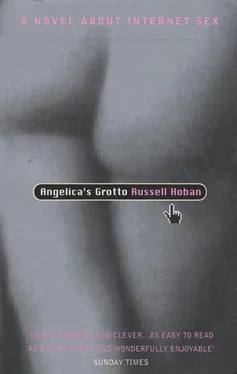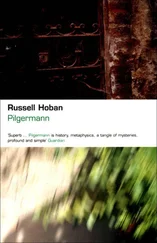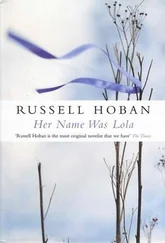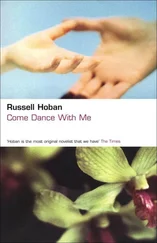‘That’s too bad, really.’
‘It is. This is a quiet place — the way it is now it’s nice to come here and sit for a while.’
‘Most changes are for the worse.’
‘I think you’re right.’
Klein went to the balustrade and looked out over the Embankment where the early rush-hour traffic east and west made a continuous blur of noise in which the white eyes of headlamps and the red eyes of taillamps came and went. Still gold and silver under the darkening sky, the river was garlanded with lights on both sides. On the water bright pleasure boats with their music and working craft without moved up and downriver, the beat of their engines calling to the shorebound. ‘So elegiac,’ said Klein, ‘so full of departure and farewell. Shining waters hung with lamps; gold and silver on the river and a goodbye look.’
At the station he went into the Temple Bar Restaurant for coffee and a bun. He sat there for a while, whispering his thoughts with his hand over his mouth. Then he went out, walked past those waiting to meet someone, past the Big Issue man to the edge of the traffic on the Embankment. Across the river the word OXO, spelled vertically on the side of a building, glowed palindromically in red neon. ‘Yes,’ he said, ‘I know.’
In the station a black cleaning woman wearing an orange London Transport hi-vi vest was singing to herself. It sounded like a Bach cantata. ‘There you have it,’ said Klein, and went home.
‘It was a two-masted schooner being built in a back yard,’ said Klein to himself, ‘close by the railroad station at Ambler. Not all that big — I think it was only thirty-six feet. I passed it every day when I was commuting to art school in Philadelphia. I kept wondering about it until one day on the way home I got off the train and introduced myself to the man who was building it: Harley Davidson, his name was — no relation to the motorbike. He seemed old to me at the time; I suppose he might have been between fifty and sixty, a freelance inventor who used safety pins where he lacked buttons and kept his trousers up with a piece of string. The name of the boat was Halcyon Days and Davidson and his son were building it from the William Hand Tornado design. They intended to sail around the world. That was back in ‘41 or ‘42. When I was drafted in 1943 the Halcyon Days was still up on stocks in the Davidson back yard. When I got out of the army in 1945 I went to New York and never saw the boat again. I wonder if they ever made the trip. Davidson showed Jim and me the moon through his telescope one evening; it looked like a mouldy orange.’
For his meeting with Angelica Klein put some necessaries in a shoulder bag: M.R. James to re-read on the Underground; reading glasses; hearing glasses (a microphone in each ear-piece); notebook and spare pen; sugar cubes in case of a hypoglycaemic reaction; glyceryl trinitrate for angina; tissues; Sony microcassette with spare batteries and cassette; Olympus point-and-shoot loaded with Fuji 1600; Swiss Army knife; Mini-Mag torch. ‘Why the torch?’ Klein asked himself.
Monday evening, 21.00: on the platform at Fulham Broadway the yellow light was sickly. Five or six people murmured or shouted into their mobile phones; others embraced what silence remained. The wincing of the rails announced the arrival of a Tower Hill train and when the doors opened the platform emptied into the carriages. When he sat down Klein wrote in his notebook, ‘This seems a very tired train, worn out after a hard rush hour. The aisles are choked with crumpled newspapers; there’s barely enough open space for the beer and soft-drink empties to roll around in. Twenty-three people in this carriage: twenty-three Its or just one It for the lot. No, there has to be one for each person, otherwise there’d be Itlock. Twenty-two inner voices, all of them presumably saying different things. Twenty-three destinies, coiled like intestines in each of us? Or not. Twenty-three continua to where?’
He opened The Collected Ghost Stories of M.R. James and began ‘Casting the Runes’, covering his mouth as he murmured, unavoidably, the words. He’d reached the part where Mr Dunning saw, on the tram-car window, the message: ‘In memory of John Harrington, F.S.A., of The Laurels, Ashbrooke. Died Sept. 18th, 1889. Three months were allowed’ when, TEMPLE! said the sign in a Dalek voice as that station appeared.
‘All right,’ said Klein. ‘No need to shout. I’m coming.’ The woman next to him looked up, then returned to her Evening Standard as he left the carriage and went slowly up the stairs.
The turnstiles were deserted, the station desolate. Beyond the exit the newsstand, the fruit and veg, and the flowers were gone into empty darkness. The warmth and light of the Temple Bar Restaurant had withdrawn from that venue like a soul from the body. On the Embankment the cars hissed and hummed east and west without pause. Across the river the OXO sign repeated its neon mantra upwards and downwards. The silence that hid under the voices, the footsteps, and the sounds of the day’s activity now showed itself alert and waiting, listening between the boats on the river and the cars on the Embankment.
Klein went up the steps to Temple Place, crossed to the other side, turned left, walked past the beckoning lamps of the Howard Hotel to Surrey Street, turned right, and went to the steps of the Arthur Andersen building where people were still going in and out of the brightly lit glass doors.
He looked at his watch: ten past ten. ‘Harold’s Monday Night,’ he said, ‘and no rain.’ He looked at the SURREY STEPS sign and the dark archway that led to the Roman baths. ‘HAZCHEM,’ he said.
Business types came down the Arthur Andersen steps and went their various ways. Klein waited. ‘Is this wise?’ he asked himself quietly. Again he saw De Schimmel, worried about the dismounted rider. ‘Why did he get off his horse?’ he said. ‘What does he see out there beyond the edge of the picture?’
At quarter past ten a white van came down from the Strand and stopped beside him. The rear doors opened and a male voice said, ‘Hey, Ruggiero.’
Klein couldn’t see the driver, saw only the black man standing in the open doors. He looked athletic, was wearing a Nike shell suit and trainers.
Klein took the microcassette recorder out of the shoulder bag, started it, and put it in an upper pocket of his jacket. ‘Where’s Angelica?’ he said.
‘She’s in a meeting but I’ll be looking after you. I’m Leslie.’ Klein recognised him as the male lead in ‘Monica’s Monday Night’. Leslie took his arm and helped him into the van. As he closed the doors the interior was suddenly brilliantly lit. Klein saw the mattress on which Monica had done her stint. The lights looked professional and there was a videocamera on a tripod.
‘Your mobile studio,’ he said as the van moved out.
‘That’s it,’ said Leslie. ‘There’s been some great footage shot in here.’
‘You take pride in your work, do you?’
‘Well, the Good Lord gave me something to be proud of and there’s no point in hiding it under a bushel.’
‘Especially when there are so many more interesting hiding places, right?’
‘Right, Grandad. Would you say that somewhere in you there’s an old lady trying to get out?’
Klein had a mental picture of what the Good Lord had given Leslie and Leslie had given Monica. His left arm was feeling somewhat leaden and his heart seemed to be clutched by a heavy fist. ‘I’d say that somewhere in me there’s a dead man trying to get out.’ He reached for the glyceryl trinitrate and gave himself a double spray under the tongue.
Читать дальше












